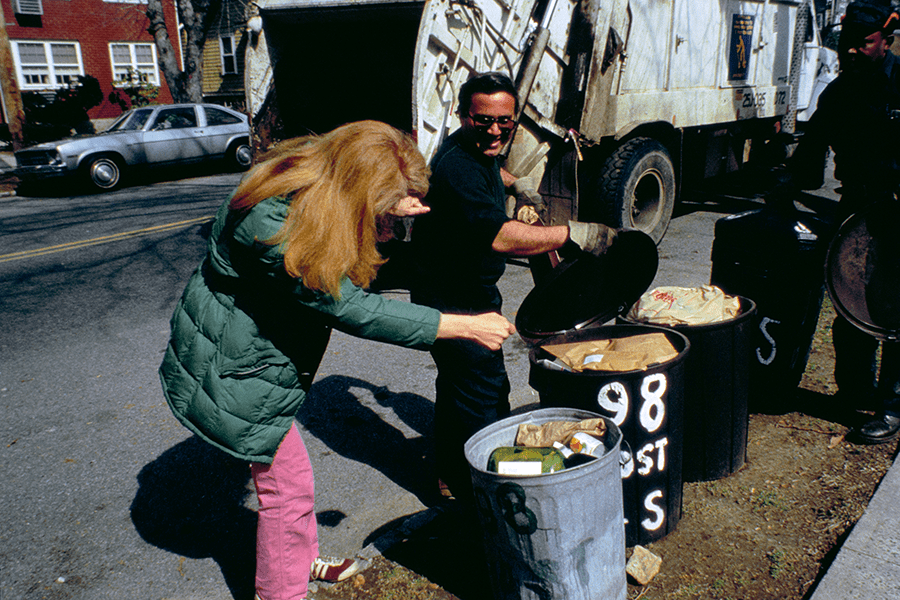Mierle Laderman Ukeles
Touch Sanitation
September 15 – November 3, 2017
SU Art Galleries | Downtown
Since the late 1960s, Mierle Laderman Ukeles’ performances, sculptural installations, and writing have explored issues profoundly important to society today: the role of women in society, cultures of work and labor, and urban and community resilience. Her MANIFESTO FOR MAINTENANCE ART 1969! laid out the hidden, yet essential role of maintenance in Western society—and the radical implications of actively valuing rather than dismissing or hiding it. That manifesto became a touchstone of conceptual and performance art, questioning not only gender and class in the art world but the foundations of the avant-garde itself. Among its choice lines: “The sourball of every revolution: after the revolution, who’s going to pick up the garbage on Monday morning?” She wrote that she planned to continue doing the things she had to do as a mother and housekeeper, but to “flush them up to consciousness, exhibit them, as Art.”For her “Touch Sanitation Performance,” the artist Mierle Laderman Ukeles, center, spent a year visiting each of the New York Department of Sanitation’s districts to shake the hand of every one of the 8,500 workers who would accept the gesture. Documentation of this performance (photographs and letters) will be on view as part of The Way We Worked exhibition. “I think her main idea — that so much happens in this world because of labor that is not acknowledged — is really powerful,” said curator Larissa Harris of the Queens Museum. She added that Ms. Ukeles’s concept of landfills as land art, at a time when men like Robert Smithson and Michael Heizer were building immense, essentially masculine land-art pieces in the American West, was “a hilariously beautiful mental leap.” In a video piece, Ms. Ukeles says of the former Fresh Kills landfill on Staten Island, once the largest landfill in the world, now being remade into a park that she is helping to shape: “All of us made the social sculpture that is Fresh Kills.”



